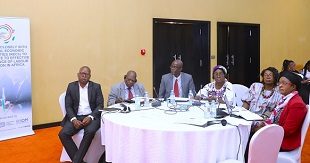
Opportunities, Challenges, and why full implementation of the historic pact may take years
ANALYSIS | THE INDEPENDENT | African countries began officially trading under the new African Continental Free Trade Area (AfCFTA) on Jan.01. It is a flagship project of the African Union’s Agenda 2063 to stimulate intra-African trade.
In brief, AfCFTA aims to bring together 1.3 billion people in a $3.4 trillion economic bloc that will be the largest free trade area since the establishment of the World Trade Organisation (WTO).
The continent-wide free-trade pact could help to realise more than $84 billion in untapped intra-African exports, according to a report by the African Export-Import Bank. That is the export potential of intra-African trade.
If the export potential is tapped under the deal, intra-continental trade could rise to more than $231 billion, or about 22% of total African commerce, even if all other conditions remained the same, says the report.
Africa could become the world’s biggest free-trade zone by area with a potential market of 1.2 billion people and a combined gross domestic product of $2.5 trillion.
But the excitement and fanfare around the event was dampened by the global COVID-19 pandemic-related gloom which ensured the trade deal was launched six months late from its initial July 1, 2020. AfCFTA’s launch against the backdrop of the UK’s finally breaking-away from the European Union also appears to have left little room for exuberant celebration in most of the continent’s capitals.
Finally, many experts treated the New Year’s Day launch as largely symbolic and said “the real work begins now”.
“Economic integration is not an event. It’s a process,” said Silver Ojakol, chief of staff at the AfCFTA secretariat. “We must start somewhere.”
South African president Cyril Ramaphosa said the continental Free Trade Area will fundamentally change the economic fortunes of the continent and enable the continent to realise the great potential of its abundant natural and human resources.
“It is the start of a new era of trade between African countries.” he said.
African leaders signed the AfCFTA deal in Rwanda in 2018 but many experts cited the experience of EU to say full implementation of AfCFTA could take decades. All but one of the 55 nations recognised by the African Union have signed to join the area and 34 have ratified the accord. The pact could cushion the region against continuing virus-related uncertainties and escalating trade tensions as well as lessen the continent’s exposure to adverse terms of trade and price cycles for commodities, Afreximbank said.
The AfCFTA is designed to lower or eliminate cross-border tariffs on majority of goods, facilitating the movement of capital and people, promote investment and pave way for a continent-wide customs union. But an outline of rules of origin which is an essential step for determining which products can be exempted from tariffs and duties has, for example, not been completed yet.
Customs delays in most African countries have been singled-out as one of the major reason that contributes to high cost of shipping commodities to Africa, as goods in some countries can take close to 10 days to complete customs clearance.
The borderless African Continental market envisaged in AfCFTA is expected to reduce the cost of shipping in Africa and improving efficiency in the industry.
The AfCFTA will create a single market for goods and services, in hopes of boosting trade among its nations.
The World Bank estimates implementation of the deal could lift tens of millions out of poverty by 2035 as African neighbours develop better value chains and trade is boosted.
The agreement will work towards a continental customs union; eliminate tariffs on 90% of intra-Africa goods; aid in the movement of capital and people between countries; facilitate external investment; and reduce non-tariff barriers, like the time it takes goods to pass through customs.
The trade agreement, which will cover a market consisting of 1.2 billion people and a combined GDP of $3 trillion, has been signed by 54 of the 55 African Union member states; Eritrea has not yet joined. Thirty-four of those countries have ratified it as of early December.
Africa has historically had low internal trade. In 2019, intra-African exports were valued at $69 billion, which represented 15 percent of the Africa’s world exports.
Both intra-African exports and Africa’s world exports have been on decline since 2018 at an estimated rate of 5 percent and 8 percent, respectively. Intra -African trade also continues to depend on trade patterns established in colonial times – value chains that support the flow of primary goods to the developed world and the return of finished goods.
 The Independent Uganda: You get the Truth we Pay the Price
The Independent Uganda: You get the Truth we Pay the Price


